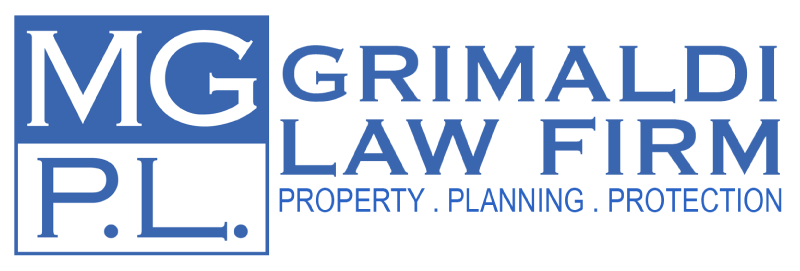When buying property in Broward County, you need to follow Florida’s rules exactly. Every contract must include basic facts like who’s buying, who’s selling, what property is being sold, the price, and when you’ll close the deal. To protect yourself as a buyer, make sure your contract lets you back out if you can’t get a loan, if the house has problems, or if it’s worth less than the asking price. By law, sellers must tell you about any building problems, dangerous materials, or past issues with the property. You’ll need to put down a deposit – usually 1-3% of the home’s price – which a licensed agent will hold in a special account. The contract should spell out how to handle any disputes and what happens to your deposit if the deal falls through. Knowing these rules helps keep you safe during the whole home-buying process.
Key Takeaways
- Ensure all mandatory disclosures about property condition, hazardous materials, and building code violations are provided before signing the contract.
- Include contingency clauses for financing, inspection, appraisal, and title to protect your interests as a buyer.
- Place earnest money deposit in a licensed escrow account within two days of contract signing per Florida regulations.
- Document all negotiations and agreements clearly in writing, including price adjustments, repair responsibilities, and included property items.
- Review contract termination conditions and dispute resolution procedures before signing to understand your rights and remedies.
Key Contract Elements
A valid real estate contract in Broward County needs certain basic parts to be legal. These include who’s buying and selling, exact details about the property, the price, how it will be paid for, and when the sale will close.
The contract must say how much the buyer will put down as a deposit and what happens to that money.
To protect buyers, the contract should let them back out if the home inspection finds problems, if the property doesn’t appraise for enough money, or if they can’t get a loan.
The paperwork needs to spell out what happens if either side breaks the deal and who pays for different closing fees.
The contract must also cover title insurance, tell what’s wrong with the property, and address any debts tied to it.
Everything in the contract must follow the rules set by Florida and Broward County for buying and selling property.
Common Contingency Clauses
Real estate deals in Broward County use safety measures called contingency clauses to protect buyers. These rules in the contract let buyers back out and get their deposit back if certain things go wrong.
Main types of contingency clauses used in Broward County include:
- A money clause that lets buyers walk away if they can’t get a loan
- A check-up clause that gives buyers the right to have experts look at the property
- A value clause making sure the property is worth what the bank thinks it should be
- A paperwork clause letting buyers look into who owns the property
- A home selling clause that makes the purchase depend on buyers selling their current home first
For these clauses to work, buyers must follow the time limits and fill out the right papers as Florida law requires.
Required Disclosures in Broward County
Sellers in Broward County must tell buyers about any problems with their property that could affect its worth or make someone less likely to buy it.
Sellers need to report problems with the building’s structure, electrical wiring, pipes, roof, and any past flooding or water damage.
They also must tell buyers about harmful substances, property line disputes, homeowner association rules, and any ongoing legal issues.
Sellers have to let buyers know about mold, bugs or pests, any work done without permits, and insurance claims from the last five years.
They must also share what they know about planned building projects nearby, building code problems, and any special fees that future owners might have to pay.
Negotiating Terms and Conditions
Real estate deals in Broward County work best when you pay close attention to what goes into the contract. This includes the selling price, when you’ll close the deal, rules about getting a loan, and what shape the property needs to be in.
Good back-and-forth talks and knowing how to handle price changes help both sides get what they want.
When making a deal, remember to cover:
- Who fixes what and when it needs to be done
- How much money goes into holding accounts and how it’s handled
- How long buyers have to check the property
- What stays with the house and what doesn’t
- What costs the seller might help pay for
Buyers should write down everything they talk about and make sure it all shows up correctly in the final paperwork.
Having a real estate expert help can make tough talks easier and get you better terms while following local rules.
Deposit and Escrow Rules
Putting down a deposit and understanding escrow rules is a key part of buying property in Broward County. When buying a home, you need to pay Earnest Money to show you’re serious about the purchase. This deposit is usually between 1% to 3% of what you’re paying for the home. The money needs to go into special Escrow Accounts within 1-2 days after everyone signs the contract.
Florida’s rules say that people handling escrow must keep the money in separate bank accounts just for real estate deals.
They also need to keep clear records of all deposits. In Broward County, if there’s a fight about deposits, people must try to work it out through mediation before going to court. The sales contract must spell out who’s handling the escrow, how much money is being held, when it’s due, and how it can be released.
Buyers need to check that their escrow agent has a valid license and enough insurance to protect the money they’re holding.
Contract Termination and Remedies
When buying or selling property, both sides need protection if the deal doesn’t work out. Broward County real estate contracts lay out when and how parties can end their agreement legally and what they can do if the other side breaks the deal.
The contract covers important points about ending agreements and fixing problems:
- What happens if buyers or sellers fail to do their part
- How long parties have to fix problems before the deal can be canceled
- Rules about giving back or keeping deposit money when there are disputes
- Ways to fix problems, like forcing the sale, getting money back, or keeping deposits
- Steps to solve disagreements through talks before going to court
Buyers should have a lawyer look over these rules to know their rights and duties before signing.
This helps make sure they’re protected if problems come up later.
Frequently Asked Questions
How Long Does It Take to Close on a Home in Broward County?
The time to close on a home in Broward County usually takes between 30 and 45 days. This time can change based on how ready the buyer is, what the bank needs, what home inspectors find, and making sure the property papers are in order. If someone pays in cash with no bank loan, they can close much faster – often in just 14 to 21 days.
Can I Transfer My Real Estate Contract to Another Buyer?
You can only pass your real estate contract to someone else if your original agreement allows it and the seller agrees. You’ll need proper paperwork and everyone must sign off in writing before you can hand over your buying rights and duties to another person.
What Happens if Hurricane Damage Occurs Between Contract Signing and Closing?
If a hurricane hits and causes damage between when you sign the contract and close on the property, you need to check the damage right away. Most home purchase contracts have rules about what happens if the property gets damaged. Buyers can usually choose to either back out of the deal or move forward with it. Whether insurance will cover the damage depends on who has an active policy at the time.
Are Verbal Agreements With Sellers Legally Binding in Broward County?
Spoken deals about buying or selling property aren’t valid under Florida law. The state requires all real estate agreements to be in writing, with the seller’s duties spelled out in signed sales documents.
Should I Hire a Real Estate Attorney for a New Construction Contract?
Getting a real estate lawyer helps you stay safe when signing new building contracts. They can spot problems, explain tricky legal terms, and make sure your rights are protected while your home is being built.
Conclusion
Buying property in Broward County means you need to pay close attention to the rules and steps involved in contracts. It’s important to understand what must be in the contract, what conditions you can add, and what information sellers have to share with you. Following the local rules about holding money and using the right words in contracts helps avoid problems later. Buyers need to check everything carefully about the property and talk to a good lawyer who can explain all the legal duties. Smart bargaining and knowing when and how you can back out of the deal helps protect everyone involved in buying and selling the property. For expert guidance on your real estate transaction, contact Real Estate Law Fl today to ensure your interests are protected every step of the way.

